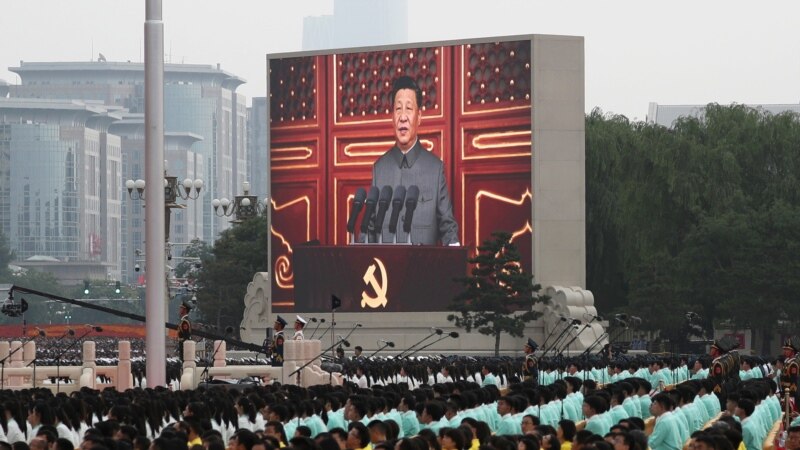
Wallace Johnson, a 97-year-old World War II Navy veteran from a suburb of San Francisco, calls China an “apt student” of programs that made the United States economically vibrant. But he’s concerned that its rising power and links with Russia will drive the superpower to move against the U.S.
“Allied with Russia, (China) might decide we are incapable of sustaining proxy war demands on both the Eastern and Western hemispheres, and might make a move on Taiwan,” Johnson said.
Johnson’s views reflect findings of a recent Pew Research Center survey of Americans’ views on China, a former Cold War foe.
Nine in 10 American adults call the Sino-Russian relationship “at least a somewhat serious problem for the United States,” and 62% say it’s a “very serious problem,” the survey found, noting that more worry about China’s ties to Russia than its involvement in U.S. politics, its human rights policies, or tensions between China and Taiwan.
Americans overwhelmingly back Ukraine, so, “if China’s government does accommodate (Russian President Vladimir) Putin, it makes the Chinese government look worse in American public opinion for sure,” said Perry Link, professor of comparative literature and languages at University of California, Riverside.
China has avoided condemning Russia over its war in Ukraine, parting ways with an outpouring of pro-Ukraine sentiment from the West.
“China is seen as an enabler, is seen as a co-conspirator and also as an accomplice,” said Yun Sun, director of the China program at the Stimson Center think tank in Washington. “This is a simplistic view, but it’s a very broadly shared view.”
Differing opinions
Opinions toward China in the United States vary by age, occupation and location, experts say.
Residents of the politically liberal U.S. coasts and younger white-collar workers with links to China view the communist country more positively than do residents of the more ideologically moderate and conservative interior states. Some of those states backed former president Donald Trump in 2016, who was tough on China.
Trump launched a trade dispute with China, curbed the U.S. activity of flagship Chinese tech firms, and stepped-up U.S. relations with Chinese political rival Taiwan, a longtime de facto Western ally. Trump’s China approach, in large part, has continued under Joe Biden’s presidency.
When evaluating China, many Americans consider the 4-year-old Sino-U.S. trade war, accusations of commercial espionage, and China’s latest COVID-19 outbreak, Sun said.
Lupe Ayala, a third-year political science student at University of California, Berkley, sees similarities between the U.S. and China.
“I know (China is), I would say, very controversial just because they’re very strict, but I think, looking at America right now, we’re basically the same, so we can’t really be pointing fingers like they’re worse than us,” said Ayala, who was disturbed by the news leak about the draft Supreme Court ruling indicating a women’s federal right to abortion might be overturned.
She urged Americans to respect customs, beliefs and cultural traits that are unique to China.
Some younger Americans believe China has the “right to a more prominent place” in the world order, said Dexter Roberts, a senior fellow at the Atlantic Council’s Asia Security Initiative and author of The Myth of Chinese Capitalism. He points to his own students at the University of Montana, a liberal school in a relatively conservative state.
“Those students argue that China is “rising relative to the U.S.,” Roberts said.
“Not a small number of students I talked to said that (Americans) need to recognize the fact.”
Younger Americans often say that they’re not concerned about the U.S. and China’s tense, competitive relationship, and that they would move to China for the adventure, travel opportunities and income potential if sent by an employer.
“I wouldn’t consider myself very politically inclined, especially not international politics, but I think that everything is worth trying once,” said Michael Alexander, a junior studying molecular and cellular biology at University of California, Berkeley.
But the COVID-19 outbreak that has caused lockdowns in Shanghai, Shenzhen and other Chinese cities over the past two months do weigh on American sentiment.
“The main issue is that they are essentially just trapped inside their apartments,” said Kush Davidd, a computer science and economics double major from the U.S. state of Georgia. “They can’t really get anywhere for food’s sake and stuff like that.”
